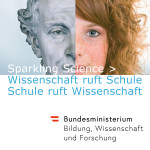Projektbeschreibung
SchülerInnen verbringen den Großteil des Tages in der Schule und werden kognitiv intensiv gefordert. Die Pausen zwischen den Schulstunden sind daher für die Regeneration der Leistungsfähigkeit sehr wichtig. Hier setzt das Projekt Green4brain an, indem es die restorative Wirkung verschiedener (Frei-)Räume in der Schule und Wohnumgebung auf die mentale Leistungsfähigkeit und das Wohlbefinden von Jugendlichen untersucht und vergleicht. In einem inter- und transdisziplinären Ansatz arbeiten drei Wiener Schulen gemeinsam mit einem Wissenschaftsteam aus der Erholungsplanung, Schul- und Umweltmedizin und Umwelttechnik. Die SchülerInnen agieren im Projekt auf mehreren Ebenen: als Forschende, als Untersuchungsgruppe und als Betroffene.
Das Projekt setzt beim Lebensalltag der Jugendlichen an: Sie nehmen ihre Erholungsräume in der Schule und Wohnumgebung zu unterschiedlichen Jahreszeiten auf, analysieren und reflektieren ihr eigenes Erholungsverhalten durch die Erstellung von Concept Maps. Mittels standardisierter Messungen wird anschließend die restorative Wirkung ausgewählter Räume auf das Wohlbefinden und die Konzentrationsfähigkeit der Jugendlichen erhoben. Die Messungen sind in der Schule und in öffentlichen Grünräumen zu unterschiedlichen Jahreszeiten geplant. In einer Zukunftswerkstatt reflektieren und synthetisieren die Jugendlichen die Ergebnisse der einzelnen Arbeitsschritte und entwickeln Strategien, um die restorativen Effekte in der eigenen Schule zu steigern.
Dem transdisziplinären Ansatz folgend, sind die SchülerInnen in alle Arbeitsschritte von Green4brain eingebunden. In Methodenworkshops lernen sie unterschiedliche Arbeitsmethoden und Messinstrumente der Erholungsforschung, Umweltmedizin und -technik kennen, die sie dann unmittelbar im Projekt praktisch anwenden können. Die Formate der Zusammenarbeit reichen von einzelnen Schulstunden, bis hin zu mehrstündigen Workshops, Projekttagen oder Praktika.
Projektlaufzeit: 01.09.2017 bis 31.08.2019

Das Projekt wird im Rahmen des Sparkling Science Forschungsprogrammes des Bundesministeriums für Bildung, Wissenschaft und Forschung gefördert. Ziel dieses Programmes ist es, die Zusammenarbeit zwischen SchülerInnen und WissenschafterInnen zu fördern.
Project description:
Everyday school life challenges pupils’ well-being as well as their cognitive skills. They are less able to concentrate, cannot sufficiently absorb the subject matters and are not balanced. The need to restore during school lessons is crucial, but what are the places in the school and living environments, where pupils can restore cognitive performance? The project Green4brain investigates and compares restorative effects of different places in the school and living environments of adolescents. Three Viennese schools work together with researchers from recreation planning, environmental health and environmental engineering. Green4brain follows also a transdisciplinary approach; the involved school students act on multi levels: as researchers, as study group and as affected actors.
The project starts with the recording of everyday life of the involved pupils: In a first step, they will survey their own recreational places within the school and the living environment during different seasons with video clips. Afterwards, they analyse and reflect their own recreation behaviour and experiences with these places using concept maps. In a second step, the restorative effects of several places on the wellbeing and the concentrativeness of pupils are measured in a standardised way. Different non-invasive psychological, physical and cognitive methods will be used. The measurements are planned in the school environment and in a public green space in different seasons. A quantitative survey based on an image-based choice model will analyse how public green spaces should be designed to attract people also in the vegetation-free season. Finally, adolescents reflect and synthesise the results of different work packages and develop strategies to improve the restorative quality of their school environment in a future lab.
Following the transdisciplinary approach, the school students are involved in all work packages. In workshops, they learn about different methods and instruments of recreation planning, environmental psychology, medicine and engineering and can use these methods directly within the project. The collaboration between research team and schools includes single school lessons, workshops lasting several hours or whole project days. Especially interested pupils have the opportunity to take part in an internship at the University of Natural Resources and Life Sciences, Vienna, to learn more about research and a researchers’ workday.
![]() Die Webseite wurde vom Institut für Landschaftsentwicklung, Erholungs- und Naturschutzplanung, Universität für Bodenkultur Wien (Projektleitung) erstellt.
Die Webseite wurde vom Institut für Landschaftsentwicklung, Erholungs- und Naturschutzplanung, Universität für Bodenkultur Wien (Projektleitung) erstellt.

Hi, das ist ein Kommentar.
Um einen Kommentar zu löschen, melde dich einfach an und betrachte die post's Kommentare. Dort hast du die Möglichkeit sie zu löschen oder zu bearbeiten.